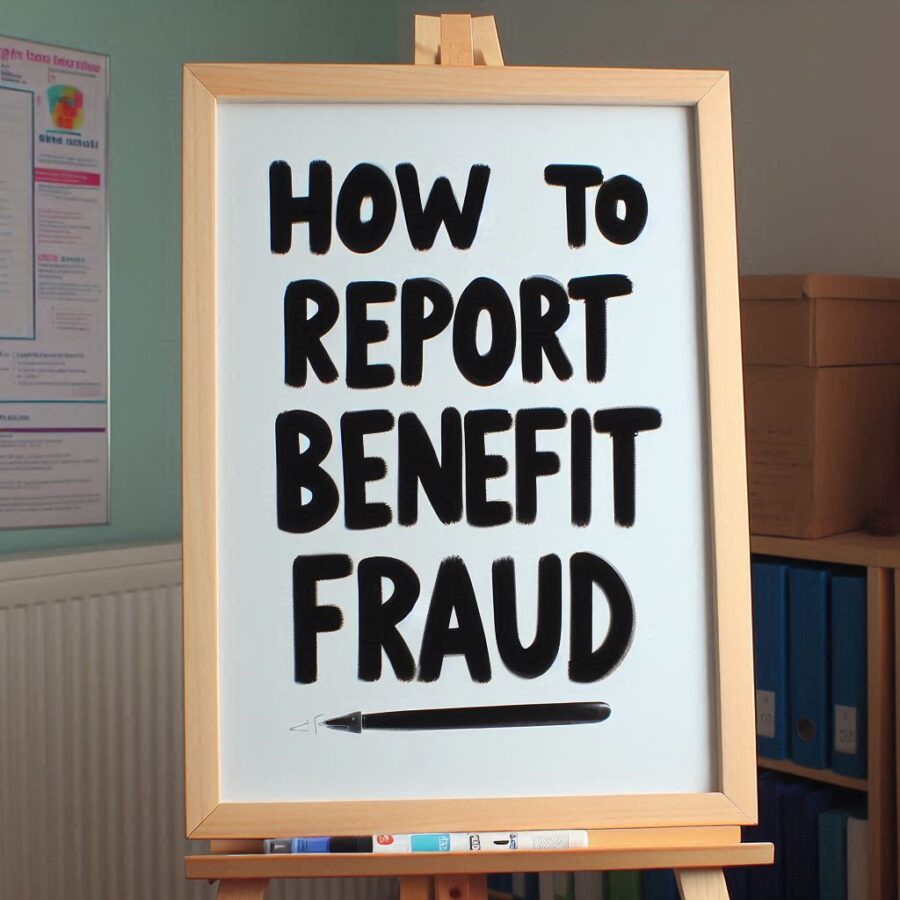Understanding the Process and Consequences
Benefit fraud is a serious issue that affects the integrity of social welfare systems. It occurs when individuals deliberately withhold information or provide false details to receive benefits they’re not entitled to. This article will guide you through the process of reporting benefit fraud, explain the investigation procedures, and outline the potential consequences for those found guilty.
Recognizing Benefit Fraud
Before reporting suspected fraud, it’s crucial to understand what constitutes benefit fraud. Common examples include:
- Failing to report changes in circumstances that affect benefit eligibility
- Providing false information on benefit claim forms
- Working while claiming unemployment benefits
- Claiming benefits under multiple identities
How to Report Benefit Fraud
If you suspect someone is committing benefit fraud, you have several options for reporting it:
- Online reporting: Most government websites have dedicated sections for reporting fraud anonymously.
- Telephone hotlines: Many countries operate benefit fraud hotlines where you can report suspicions.
- In-person: You can visit your local benefits office to report fraud in person.
- Mail: Some agencies accept written reports of suspected fraud via post.
Contact Information for Reporting Benefit Fraud
To report suspected benefit fraud, you can use the following official channels:
Online Reporting
You can report benefit fraud online by visiting: https://www.nidirect.gov.uk/services/report-benefit-fraud-online
Telephone Hotlines
For those who prefer to report over the phone, there are several options depending on your location:
United Kingdom
National Benefit Fraud Hotline (NBFH)
- Telephone: 0800 854 440
- Textphone: 0800 328 0512
Northern Ireland
- Telephone: 0800 975 6050
Spain
Spain Benefit Fraud Hotline
- Telephone: 900 55 44 40
Remember, you can usually report benefit fraud anonymously if you prefer. When using these contact methods, be prepared to provide as much detail as possible about your suspicions.
When reporting, provide as much detail as possible, including:
- The name and address of the person you suspect
- The type of benefit you believe they’re fraudulently claiming
- Any evidence you may have to support your suspicion
- Your own contact information (if you’re willing to be contacted for further information)
Remember, you can usually report benefit fraud anonymously if you prefer.
The Investigation Process
Once a report is made, benefit fraud investigators will assess the information and decide whether to pursue an investigation. Here’s what typically happens:
- Initial assessment: Investigators review the report to determine if there’s enough evidence to warrant further action.
- Information gathering: If an investigation is launched, officers will collect evidence by:
- Checking government records
- Contacting employers
- Reviewing financial records
- Conducting surveillance (in serious cases)
- Interviews: The person under investigation may be asked to attend an interview to discuss their claim. This is an opportunity for them to explain any discrepancies.
- Decision making: Based on the evidence gathered, investigators will decide whether fraud has occurred and what action to take.
Consequences of Benefit Fraud
If someone is found to have committed benefit fraud, they may face several consequences:
Legal Consequences
- Prosecution: In serious cases, individuals may be prosecuted, which could result in fines or imprisonment.
- Formal caution: For less severe cases, a formal caution may be issued as an alternative to prosecution.
- Administrative penalty: In some instances, a financial penalty may be imposed instead of prosecution.
Financial Consequences
- Repayment: Individuals will be required to repay any overpaid benefits.
- Fines: Courts may impose fines in addition to repayment.
- Asset confiscation: In extreme cases, assets may be seized to recover fraudulently obtained funds.
Benefit-Related Consequences
- Benefit reduction or withdrawal: Depending on the severity of the fraud, benefits may be reduced or completely withdrawn for a period of time.
- Future claim restrictions: It may become more difficult to claim benefits in the future.
Administrative Penalties
In cases where full prosecution isn’t deemed necessary, administrative penalties may be applied:
- The standard penalty is 50% of the overpayment, with a minimum of £350 and a maximum of £2,000.
- For attempted fraud, a fixed penalty of £350 may be considered.
Loss of Benefits
Benefit fraud can result in the loss of certain benefits for varying periods:
- 13 weeks for a first offense
- 26 weeks for a second offense
- Up to 3 years for serious or repeated offenses
The most severe cases, involving organized or identity fraud, may result in an immediate 3-year loss of benefits.
Sanctionable vs. Disqualifying Benefits
It’s important to understand that not all benefits can be reduced or stopped due to fraud. Benefits are categorized as either “sanctionable” or “disqualifying”:
Sanctionable Benefits
These can be reduced or withdrawn and include:
- Employment and Support Allowance
- Housing Benefits
- Incapacity Benefit
- Income Support
- Jobseeker’s Allowance
- Pension Credit
- Universal Credit
Disqualifying Benefits
These cannot be directly sanctioned but may lead to penalties against sanctionable benefits:
- Retirement Pension
- Disability Living Allowance
- Attendance Allowance
- Personal Independence Payment
Exceptions
Some benefits are exempt from all sanctions and penalties, including:
- Maternity-related benefits
- Certain health-related payments
- Statutory pay (e.g., Statutory Sick Pay, Statutory Maternity Pay)
Preventing Benefit Fraud Suspicions
To avoid being suspected of benefit fraud, claimants should:
- Report changes promptly: Inform the benefits office immediately of any changes in circumstances that might affect eligibility.
- Provide accurate information: Ensure all details on claim forms are truthful and complete.
- Respond to inquiries: Cooperate with any requests for information or attendance at interviews.
- Keep records: Maintain documentation that supports your benefit claims.
How Benefit Claims are Checked
Benefit offices employ various methods to verify claims:
- Initial checks: When a claim is first made, officers compare the information provided with existing records.
- Ongoing verification: Claims can be checked at any time, not just at the initial application.
- Data matching: Information may be cross-referenced with other government agencies, such as tax authorities.
- Spot checks: Random checks may be conducted on specific benefits or groups of claimants.
Your Rights and Personal Information
While benefit offices have the authority to collect and share information to prevent fraud, claimants have rights regarding their personal data:
- Right to know: You can request information about what personal data is held about you.
- Data protection: The collection and use of your data are governed by data protection laws.
- Information Commissioner: The Information Commissioner’s Office enforces these rights and can provide further guidance.
Final words
Reporting benefit fraud is crucial for maintaining the integrity of the welfare system and ensuring that resources are allocated to those truly in need. While the consequences of committing benefit fraud can be severe, the system also aims to protect innocent claimants through thorough investigation processes and data protection measures.
If you suspect benefit fraud, don’t hesitate to report it through the appropriate channels. For those receiving benefits, staying informed about your responsibilities and promptly reporting any changes in circumstances is the best way to avoid suspicion and ensure you receive the correct support.
Remember, the welfare system is designed to help those in genuine need. By working together to prevent and report fraud, we can help ensure that these vital resources are used as intended, supporting the most vulnerable members of our society.

